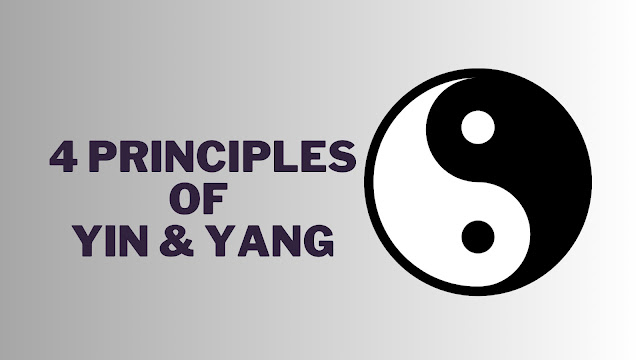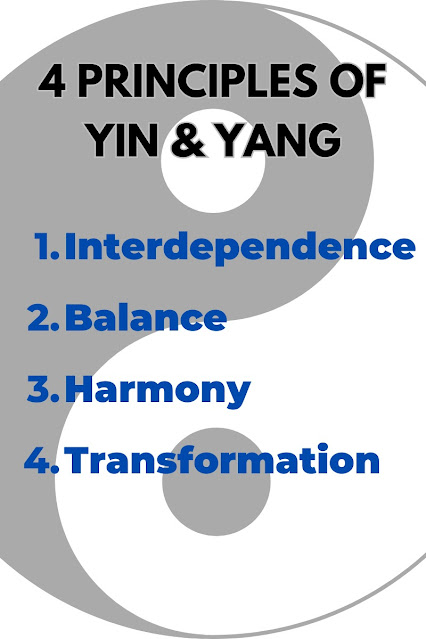Introduction “Your thoughts create your reality” often sounds like a spiritual phrase—beautiful, but hard to prove. For years, it was placed in the same category as affirmations and motivational quotes. Yet something interesting is happening in modern science. Quantum physics, a field known for its precision and complexity, is beginning to echo a similar idea, not as belief, but as observation. This does not mean thoughts magically control the universe. It means reality may be more interactive than we once believed. At the smallest levels of existence, the act of observation, interaction, and interpretation appears to influence outcomes. And that has powerful implications for how we understand the mind. When you look at these discoveries carefully, a new perspective emerges. Your mind may not be a passive viewer of life. It may be an active participant in shaping how reality unfolds for you. The Observer Effect Shows That Awareness Matters...
Introduction
In Chinese philosophy and culture, yin-yang theory represents two complementary yet conflicting forces or energies that exist in all parts of existence.The yin-yang symbol, which consists of two halves of a circle, one black and the other white, with a smaller circle of the opposite color within each half, is frequently used to represent the notion of yin and yang. The symbol reflects the idea that yin and yang are interdependent and interrelated and that they gradually evolve into one another.
The harmony and balance of yin and yang are said to be necessary for creating harmony and balance in all aspects of life, including health, relationships, and nature. In Chinese medicine, imbalances between yin and yang are thought to cause illness, and therapies are aimed at restoring the two energies' equilibrium. Overall, the concept of yin and yang is vital to Chinese philosophy and is utilized to analyze and explain the universe's interconnection and equilibrium.
4 Principles of Yin and Yang
1. InterdependenceYin and yang signify opposing energies that, when combined, constitute everything in nature. They reflect the various facets of the world and how they must be properly balanced to be complete.
2. Balance
Yin and Yang are in constant motion and collaborate to maintain a harmonic equilibrium in nature. According to this principle, everything in the universe strives for balance, and any imbalance might lead to chaos and disorder. We must acknowledge and welcome both Yin and Yang energy to establish equilibrium.
3. Transformation
Yin and Yang are continually changing into one other. This principle implies that change is continual and that nothing remains constant. Yin and Yang's forces continually alter, just as the day goes into night and winter evolves into spring.
4. Harmony
Yin and Yang collaborate to maintain a harmonic equilibrium in nature. This idea implies that we should strive for harmony in our personal lives and the world around us. We can obtain serenity and tranquillity by embracing Yin and Yang forces and creating a harmonious balance between them.
1. Accept both Yin and Yang:
Yin and yang are complementary opposites that cannot exist apart from one another. Similarly, it is critical to accept life's quiet and active elements. Rest and relaxation are important, but so are constructive and difficult activities.
Yin and Yang collaborate to maintain a harmonic equilibrium in nature. This idea implies that we should strive for harmony in our personal lives and the world around us. We can obtain serenity and tranquillity by embracing Yin and Yang forces and creating a harmonious balance between them.
How to Incorporate Yin and Yang Principles for a Balanced Life
The yin and yang principles are ancient Chinese beliefs that emphasise the value of balance and harmony in one's life. Here are some examples of how you might apply these principles in your daily life:1. Accept both Yin and Yang:
Yin and yang are complementary opposites that cannot exist apart from one another. Similarly, it is critical to accept life's quiet and active elements. Rest and relaxation are important, but so are constructive and difficult activities.
2. Find a happy medium:
Finding a happy medium is the key to living a balanced existence. This includes avoiding excesses in all aspects of your life, including work, exercise, and even leisure activities.
3. Connect with nature:
Nature is the epitome of yin and yang balance. Spending time in natural environments, such as parks or woods, can assist you in connecting with these concepts and bringing balance into your life.
4. Mindfulness:
Mindfulness is the practise of being present in the present moment without judgment. It can assist you in becoming more aware of your thoughts and emotions and finding balance in your responses to them.
5. Develop self-awareness:
Understanding your own strengths and shortcomings is critical to achieving life balance. Take some time to reflect on your values, priorities, and ambitions, and make any necessary changes.
By incorporating these ideas into your daily life, you can achieve a sense of harmony and balance, improving your general well-being.
Finding a happy medium is the key to living a balanced existence. This includes avoiding excesses in all aspects of your life, including work, exercise, and even leisure activities.
3. Connect with nature:
Nature is the epitome of yin and yang balance. Spending time in natural environments, such as parks or woods, can assist you in connecting with these concepts and bringing balance into your life.
4. Mindfulness:
Mindfulness is the practise of being present in the present moment without judgment. It can assist you in becoming more aware of your thoughts and emotions and finding balance in your responses to them.
5. Develop self-awareness:
Understanding your own strengths and shortcomings is critical to achieving life balance. Take some time to reflect on your values, priorities, and ambitions, and make any necessary changes.
By incorporating these ideas into your daily life, you can achieve a sense of harmony and balance, improving your general well-being.


Comments
Post a Comment
Please do not add any spam link in the comment box